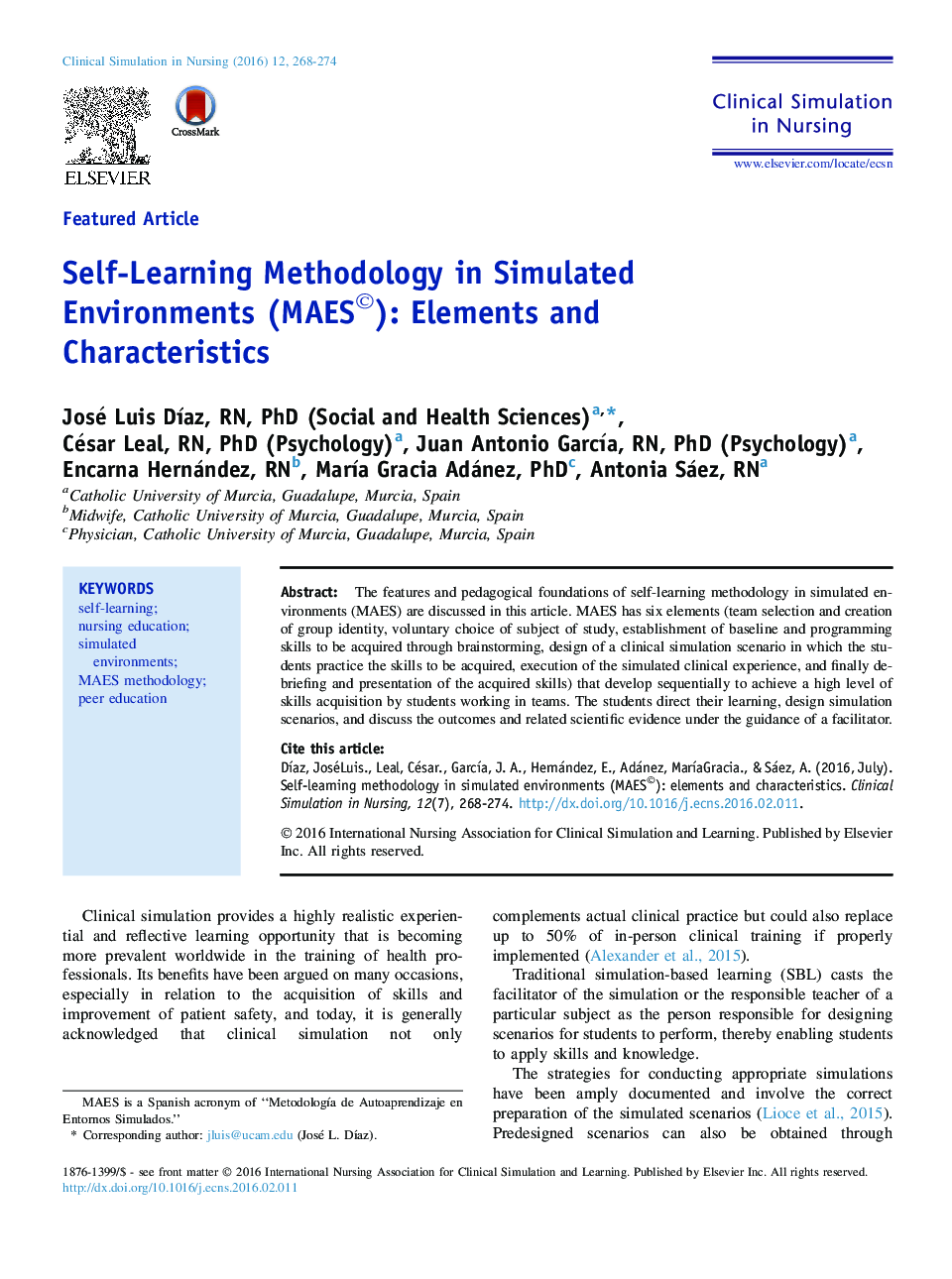| Article ID | Journal | Published Year | Pages | File Type |
|---|---|---|---|---|
| 2646886 | Clinical Simulation in Nursing | 2016 | 7 Pages |
•Presentation of a methodology of educational innovation in simulation.•Explanation of the benefits of self-directed learning and peer education in clinical simulation.•Development of a form of learning based on the importance of the functioning of autonomous work teams of nursing students.
The features and pedagogical foundations of self-learning methodology in simulated environments (MAES) are discussed in this article. MAES has six elements (team selection and creation of group identity, voluntary choice of subject of study, establishment of baseline and programming skills to be acquired through brainstorming, design of a clinical simulation scenario in which the students practice the skills to be acquired, execution of the simulated clinical experience, and finally debriefing and presentation of the acquired skills) that develop sequentially to achieve a high level of skills acquisition by students working in teams. The students direct their learning, design simulation scenarios, and discuss the outcomes and related scientific evidence under the guidance of a facilitator.
